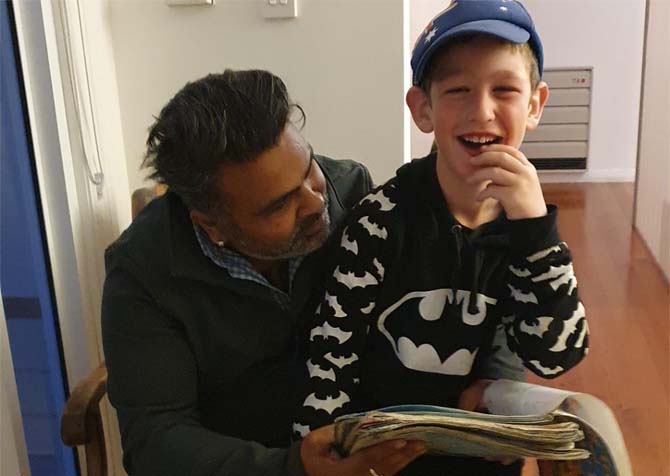What We Offer
Pathfinder Care is a trauma informed practice grounded in an understanding of and responsiveness to the impact of trauma. This is a strengths-based framework which is founded on five core principles – safety, trustworthiness, choice, collaboration and empowerment as well as respect for diversity. In trauma informed services trauma survivors are seen as unique individuals who have experienced extremely abnormal situations and have managed as best they could.
Our residential services focus on empowering young people to develop their social, emotional, independence and functional skills, enabling them to acquire coping mechanisms for the future, and take steps towards resilience and wellbeing.
We work in partnership with families, carers, child safety, stakeholders and the young person themselves to identify the most suitable residential care placement, which will fully meet their requirements and provide the best level of support.
NDIS Services Provider
Our professional care staff are carefully recruited and matched to our clients. Our Client services, Rostering and Administrative personnel are recruited for their expertise. Every situation is obviously different and so our services must be carefully and individually tailored to meet each person’s needs. We first take the time to understand each client, their needs and their goals and we then work towards developing a solution to match. Once the model of care is in place, there is an ongoing process of liaison and co-ordination to ensure the client’s needs and goals are continually being met.
The NDIS Price Guide and Catalogue contains a lengthy list of service
details and prices (and limits) that are adhered to by Pathfinder care.
Prices
are available via the link below. For a detailed explanation of our services
and prices, please contact us.
NDIS providers/price guides and pricing.

Out Of Home Care
Immediate Or Crisis Care
Emergency placements are for children who need an urgent placement because there are concerns for their immediate safety. These placements can occur after-hours and on weekends. Emergency carers need to be able to provide care for very young children at short notice.
Respite Care
From time to time, parents and carers need a break from their caring role. Respite care is for short periods of time, such as school holidays, weekends or for short periods during the week.
Short To Medium-Term Care
This can last for anywhere from a few months to two years. Short to medium-term care has a strong focus on reuniting the child with their birth parents or extended family within two years of the child or young person’s coming to live with them. In some circumstances a short-term carer may be caring for a child before they move to another carer who is not a relative or kin./h4>
Long-Term Or Permanent Care
These are placements for longer than two years. Long-term or permanent care usually occurs when the child is not expected to return to their family.

At Pathfinder Care, because we understand that no two children
are alike and as such our solutions are child-centred and completely
bespoke to the unique needs of each young person in our care.
Outside
therapy, counselling and specialists will be sourced to empower our young
people to overcome their limitations and develop useful skills for the future,
enabling them to re-engage with their lives in a meaningful and functional way.
We help individuals to build their independence and confidence resulting in self-sufficiency.
Some of these outside services may include:
 Education tutors
Education tutors
 Speech and language therapy
Speech and language therapy
 Occupational therapy
Occupational therapy
 Cognitive behavioural therapy
Cognitive behavioural therapy
 Cognitive analytic therapy
Cognitive analytic therapy
 Play therapy
Play therapy
 Art therapy
Art therapy
 Music therapy
Music therapy
High Quality Facilities And Homely Environments
At Pathfinder Care, residential children’s houses are chosen to be homely, comfortable and welcoming, enabling the young people in our care to feel safe and looked after. We offer everything that you’d expect to find in a family home, balanced alongside relevant modifications, enabling us to provide the best care for individuals’ needs.
Our residential houses also offer home cooked nutritious meals that are prepared by staff ensuring young people eat well and individual dietary needs are met where appropriate. Young people are encouraged to participate in meal choice and preparation.
Dedicated And Highly Skilled Teams
Our multidisciplinary teams are made up of highly skilled and experienced individuals, all of whom are committed to caring for and improving the lives of young people. Our fully trained and experienced residential support workers ensure that all homes maintain a broad and diverse staffing in terms of gender, ethnicity, age and background. All staff undergo a rigorous recruitment process so are skilled and experienced within their role . At Pathfinder Care, it is imperative that staff teams are nurtured, supported and developed throughout their employment in order to be able to provide the best possible service and outcomes for our children and young people.
Training for staff is continuous and covers all key areas that are pertinent to the role. Training also ensures that staff remain knowledgeable in their practice and understand the needs of our young people, are able to engage in behaviour support and management, are diverse, adaptive and dynamic in their approach to behaviour support, and ultimately are committed to safeguarding and promoting the welfare of our young people. All staff are trained to at least Community Services Cert 3 or are enrolled and working towards this within six months of their employment.
Emergency Placements
We understand that it’s not always possible to plan a placement within a residential children’s home. As such, we will consider emergency placements in order to stabilise behaviours, assess risk, and allow a young person to enter care as quickly and as smoothly as possible.
Mack The Therapy Dog
Dogs can play an important role in any child’s life. They can offer friendship, support with social and emotional development, and generally help children feel more comfortable in the world. Therapy Dogs—sometimes called Pets as Therapy, or PAT Dogs—do the same, while also creating an opportunity for kids with low vision or blindness to learn about the experience of partnering with a Guide Dog, if they choose to do so later in life. Therapy Dogs can also provide companionship and emotional support for families or social groups. Sometimes, a Therapy Dog’s support can be as simple as sitting by your side if you feel nervous about something. Other times, Therapy Dogs can bring families together by encouraging long-term routine, commitment, and empathy for others. More about Mack


 Social, emotional and mental health needs
Social, emotional and mental health needs